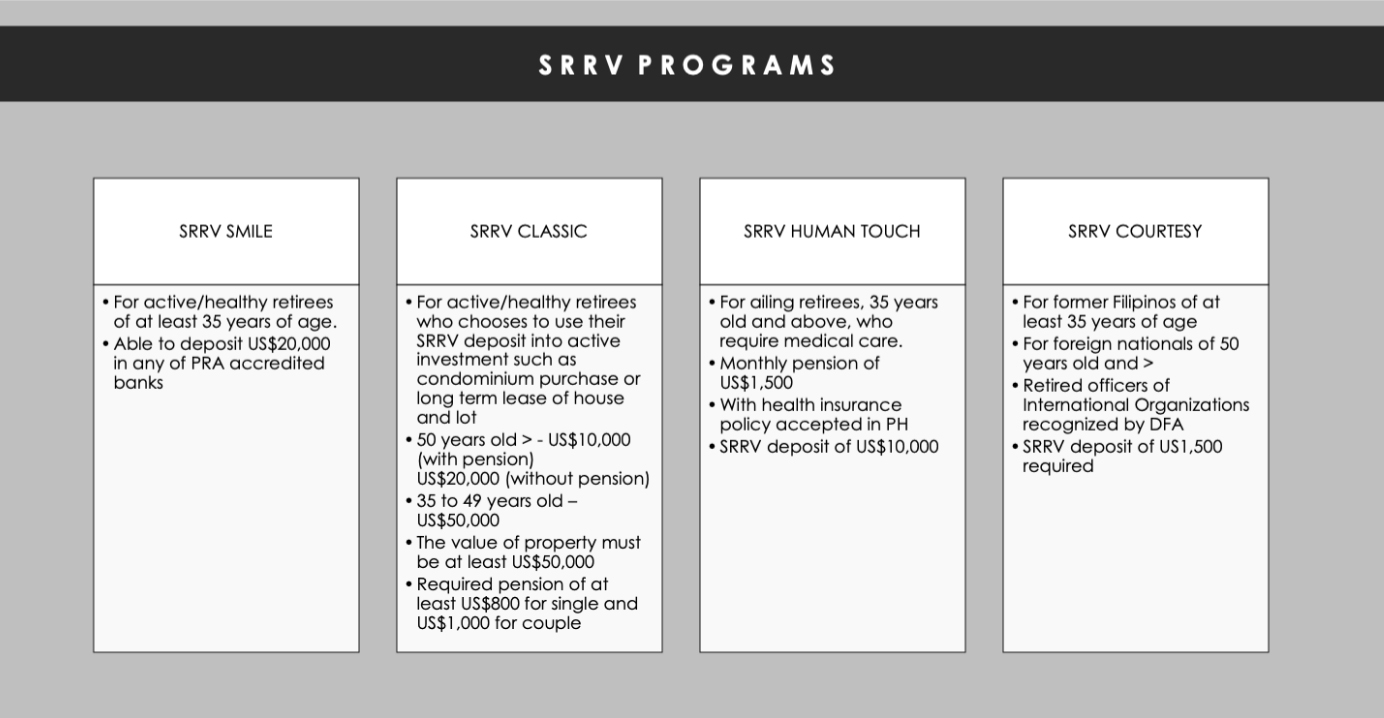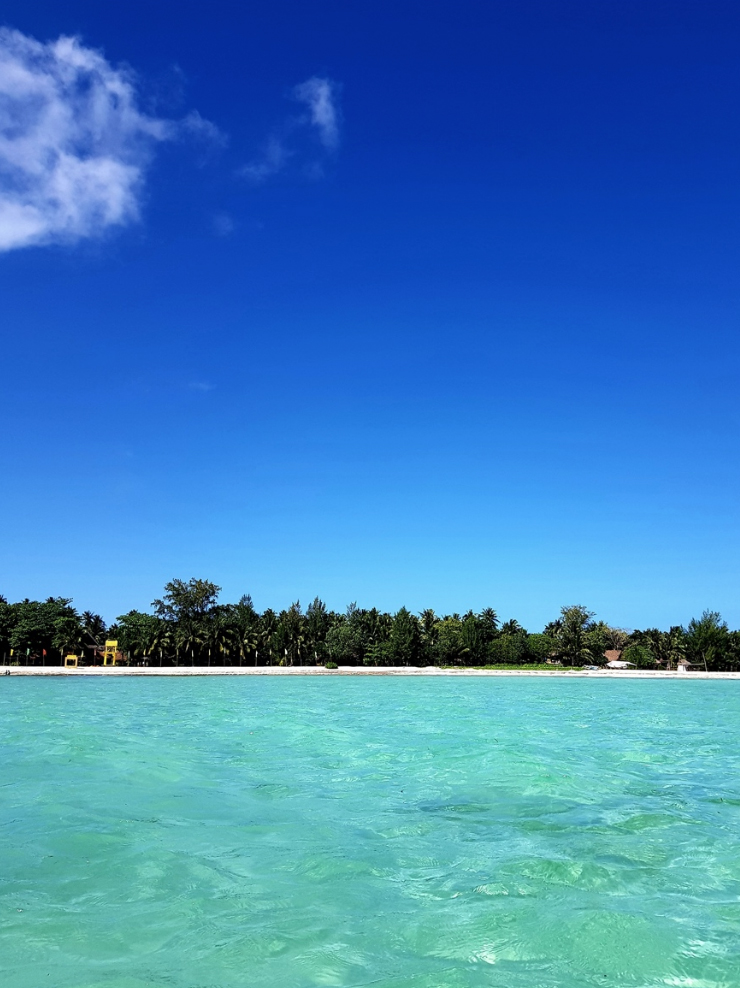The Philippines is regarded as one of the top and popular retirement destinations in the world. The countryside development, manageable cost of living, English speaking population, and flexible residency options, are some of the appealing reasons why the country is an ideal retirement haven. Whether the plan is to enjoy a backdrop of tropical paradise or unwind in a penthouse amidst the bustling lights of the metro, retirement in the Philippines can be a great escape when done right the first time.
The government lived up to its mission of promoting retirement in the country by establishing an agency solely dedicated to this cause, the Philippine Retirement Authority (PRA).
Getting the Right Visa
The Special Resident Retiree’s Visa (SRRV) is a special non-immigrant visa for foreign nationals who intend to reside, retire, and make valuable investment in the country. There are different programs offered to interested applicants.

via inward remittance. Police clearance from the last country of residence and local clearance
from the National Bureau of Investigation (NBI) must be prepared as well. Upon confirmation of
deposit from PRA, SRRV applicants will be endorsed to the medical examination from a PRA
accredited clinic. The approval period usually takes 25 working days.
Successful applicants may enjoy the following benefits:
1. Permanent residency;
2. Multiple entry privilege;
3. Exemption from the Immigration’s annual reportorial requirement;
4. Custom duties and taxes of household goods and personal effects importation worth
USD$7,000;
5. Exemption from Travel Tax;
6. Access to Greet and Assist Program at selected airports; and
7. Benefits from Philhealth, the national health insurance agency.
Environment and Many Opportunities
Oystein Sunde, 62, a Norwegian national retiree, has lived in the country for couple ofseveral
years now. For Oystein cites, the SRRV offers flexibility such as the option to invest the deposit
in properties like condominiums, but hopefully hopes that in the future the deposit can be used
as a form of investment in local private companies too.
“Despite too much bureaucracy, the Philippines is a loveable country because of its
environment and the many opportunities. Connect and discuss with other expats before you
venture into business as its probably very different from your home country. For visa and
immigration matters, it is best to get the help of an immigration consultant or legal firms because
they basically can help all the way. For me, it was very easy, because it was mostly signing
docs and go to a couple of governmental agencies,” Oystein adds.
With that, we are one with the Philippine Retirement Authority in promoting the country as a
retirement destination.

